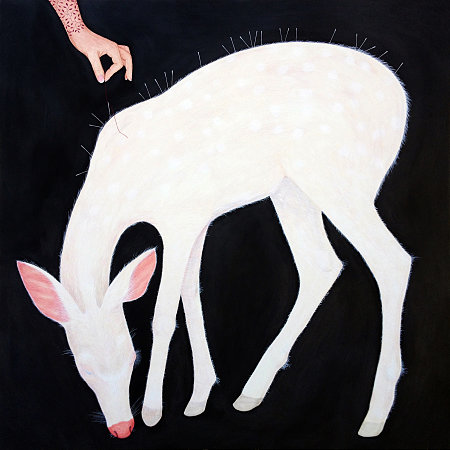
Alone
Every neighborhood has a schedule for tree pick-ups, but no one gets upset when the day comes and goes and the trees stay. Isn’t it just like the city to hire an incompetent, someone smart enough to come up with a slogan—We Save the Earth So You Don’t Have To—but not smart enough to do the actual work? Still, when pick-up is only two days late, not even the snarliest citizens dial the Action Center.
Snow falls steadily and mounds on walks and curbsides. Some hours pass without a single flake, giving us respites of clear air, but, it being January, the freezing temperatures hold steady, and nothing melts. Some of those Christmas trees take on curious shapes. The snow-covered, wayward branches of balsam or Douglas fir, sticking out here and there, morph into free-form sculptures, fragments of modern art.
That’s how things look. Not bad, really. We can name five worse times. Right off and without hesitation. Each example worse than the one before.
Road crews do start getting behind, however, and when that happens—we all know this is true—there’s no catching up until April. March, if all the stars align. This stops some traffic but not all. Taxis clog unplowed streets, and limos barrel past, tinted windows hinting at an important face inside. In one of these, the passenger complains about being late for his nine o’clock, rants that city hall is hearing about this. In another limo, there is no nine o’clock. This rider, her eyes closed, listens contentedly to Bach, oblivious to people stomping through heaps of snow just outside her darkened window.
IV.
Next week? With snow still falling daily, those discarded trees lose all resemblance to sculptures, even ones designed by the warped minds of art school dropouts. Instead, what we have are lumps. Not uniform, of course. This is nature covered by nature. But every tree is completely buried, no funky branches sticking out as if by some clever design. Nothing hinting at a holiday. Now, most of us only come up with three worse examples. A few of us find four, but no one finds five.
Trains are packed, rush hour or not. We wrangle for room on platforms where we watch cars disgorge a few passengers and take on a few more before creeping away. Most of us don’t complain about the crowding and the waiting; many of us are pleased to put off the daily drudge.
Panhandlers are cheerier than usual with all those extra riders to massage for a quarter here, a dime there. They hunker as close to the turnstiles as guards allow, call out with a sing-song beat, “Help a buddy down on his luck, Mister? Miss?”
One bony lady has been begging money to bury her father for so many years the gent must be fossilized by now. She totters in the aisle of a train car and waves documents, death certificate in her left hand, funeral bill in her right. At the first sign of encouragement, she unhooks a tin cup from her belt loop and sticks it out for the offering. Riders’ donations clang in the cup, but she reserves her ragged-toothed smile for the silent offerings, no matter the denomination. Many of us mean to save until, day of days, we plop a c-note in her cup, enough to earn one of her documents in exchange. Death certificate or funeral bill. She can choose. When she’s milked us for as much as we’re worth, she gathers three stuffed Bloomingdale’s bags and moves on to repeat the spiel in the next car until the train’s rumble drowns her out.
